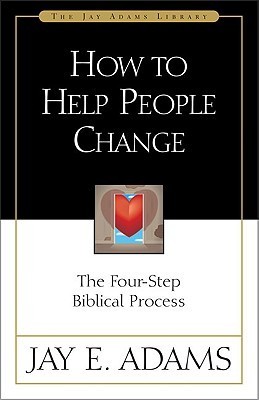What do you think?
Rate this book


203 pages, Paperback
First published July 27, 1986
Concentrate on using the Bible alone … learn … how to use the Bible cogently and effectively in its full strength. In all of this you must ask the Spirit of God to sustain and guide you, by the Bible, of course!Adams also points out that counseling should focus on the heart, not just external behavior. When the heart is changed to align with the Bible, biblical attitudes and behavior will follow. Adams says, "There can be no acceptable change of life without a corresponding change of heart."
The best way to convince counselees of their need to look at matters differently is to show them that they are not analyzing the problem biblically. This can best be done by noting (1) that the Bible does not entertain the categories and terminology the counselee is using, and (2) that in scriptural cases similar to his, the Bible describes his kind of behavior or attitudes as sin.Forsaking Sin